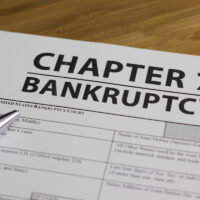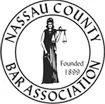How do I Qualify for Chapter 7 in New York?

If you are struggling with debt in New York, filing for bankruptcy may be your best option for debt relief. Individuals and businesses are generally able to choose between Chapter 13, which allows debtors to work with creditors to develop a payment plan, and Chapter 7, which allows debtors to wipe their debts clean completely. Most people intuitively think of Chapter 7 when they think of bankruptcy. However, to file for Chapter 7 bankruptcy, you must meet certain requirements. A seasoned Poughkeepsie bankruptcy lawyer can help you determine whether you are eligible for Chapter 7 bankruptcy and otherwise explore your options for debt relief.
The Chapter 7 means test
Chapter 7 bankruptcy is available to individuals and businesses and can be used to eliminate most debts, such as credit card debt and personal loans. Chapter 7 bankruptcy involves liquidating certain of your assets to pay off debts as best you can and then forgiving you for the remainder. In order to file for Chapter 7 in New York, you must pass the “means test.” The means test measures your income level.
If your current monthly income is below the New York median income for a household of your size, then there is a presumption that you pass the means test, and you are eligible to file for Chapter 7. Your average household income is determined by taking the average of your monthly income over the last six months. For annual income, you multiply that by 12. If you are above the median, but your income has declined recently, you may benefit from waiting a few months so that your average income drops.
If your income is above the median New York level, you may still be eligible for Chapter 7. You can fill out an additional form that compares your income to your expenses; this is the proper “means test.” The means test requires gathering all of your financial information to calculate your income and expenses, and it includes all sources of income: business income, rental income, stock dividends, pensions and retirement plans, unemployment income, and amounts paid by others for your expenses. Your “expenses” come from federal, state, and local city or county averages for typical household expenses, as well as certain specific, actual expenses incurred by your household.
After you collect your information, you subtract your allowed expenses from your income as calculated. The resulting amount is your “means” for the purposes of the bankruptcy code. If the amount is too high, you may not qualify for Chapter 7 bankruptcy. Your bankruptcy attorney can help you calculate your exact income and allowed expenses under the test, whether you satisfy the test according to the result or other exemptions or special circumstances, and whether Chapter 7 bankruptcy is best for you and your family.
Median New York household income
The median income varies depending on household size and changes over time. As of November 1, 2019, according to the New York federal bankruptcy courts:
- For a household of one person, the median monthly income is $4,677, and the median annual income is $56,120.
- For a household of two people, the median monthly income is $5,946, and the median annual income is $71,349.
- For a household of three people, the median monthly income is $7,223, and the median annual income is $86,670.
- For a household of four people, the median monthly income is $8,803, and the median annual income is $105,636.
Reach out to a knowledgeable bankruptcy attorney for information on the median income for households of other sizes.
Exemptions from the means test
You may not have to worry about the means test under certain circumstances. For instance, if your debts are not primarily consumer debts or if you are a disabled veteran who mainly incurred debt while on active duty or homeland defense, you may be able to file under Chapter 7 regardless of whether you pass the means test. Your bankruptcy attorney can help you determine whether you qualify for any exemptions.
If you are struggling with debt in New York, contact the compassionate and efficient Hudson Valley bankruptcy lawyers at the Law Office of Taran M. Provost, PLLC for a free consultation on your case at 845-675-3243.



